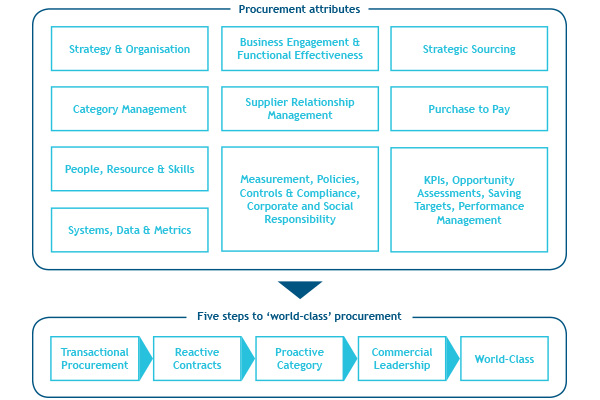Any size of organisation, from an SME (or a school!) without a procurement team, to large multinationals with dedicated staff, can make the transition to having a world-class procurement function.
Since all businesses exist to make profit, it stands to reason that this applies to your suppliers too.
Contracts are often written specifically to crank up margin over time and finance and procurement directors often lack the time, the expertise and the knowledge required to prevent suppliers from generating maximum income from their account. In our experience, it’s either that – or a misplaced belief that they are already paying the best price they can – that prevents organisations from tackling these issues, and that can lead to significant sums of money leaking out of the business unnecessarily.
Generally, suppliers base the price you are offered on the opportunity in front of them on the given day and, of course, their objective is to maximise their margin. Their sales people are, on average, better trained, better resourced and better incentivised – as well as being given more freedom to do that – than your ‘buyers’ are. And the inverted commas are because the majority of people purchasing on behalf of organisations aren’t trained buyers at all. Add to that the fact that the suppliers understand their own industry better than you do and it can start to sound like an uneven playing field.
In our experience it most certainly is.
It’s therefore important to remember that the path to procurement enlightenment starts with a single step; improving your procurement incrementally can be a good way of breaking the task down into more manageable chunks, and there are benefits along the way.
Our five-step programme can lead you from a place of ‘transactional procurement’ to ‘world-class’ by targeting ten key attributes.
Effective procurement of the full range of goods and services you buy in to run your business has some tangible effects:
- Lower operating costs
- Financial savings
- Budget recovered to be redeployed elsewhere
- Increased shareholder value
More results-oriented procurement strategies can be really effective in times of economic strain.
Economic challenges can mean finding effective new sources of revenue is an imperative. Where better to look, than trying to keep more of the money you earn and pay less to suppliers in the first place? As more uncertainty looms, risk increases and organisations come under competitive pressure to look at innovative ways to secure growth and control cost.
Sales vs. Procurement
It’s an old debate in procurement circles, but the argument about who can add the most value, Sales or Procurement, is an interesting one. Our recent survey with CIPS demonstrated that a huge majority of procurement professionals believe that more investment in their department will generate tangible improvements to bottom line profit. A simple 20% reduction in cost – about our average saving – across the board on an organisation’s indirect costs can yield the same enhancement to profit as would be generated by growing the entire company by 20%… and it’s a far easier process.
Procurement Maturity Assessment
An ERA procurement expert can begin to make an assessment of where your purchasing is at currently, by assessing your current level of maturity across a range of attributes:

This can help to establish a baseline for your organisation to begin making improvements from. It also establishes a pathway, enabling organisations to see where improvements need to be made and where the opportunity for improved effectiveness and efficiency exist.
There are a huge number of tangible benefits to undertaking a programme of work such as this one. Proactive management of both process and cost allows organisations to realise immediate upfront cost savings by procuring items, services and contracts at the best price available.
Article by: Karnjit Cooner